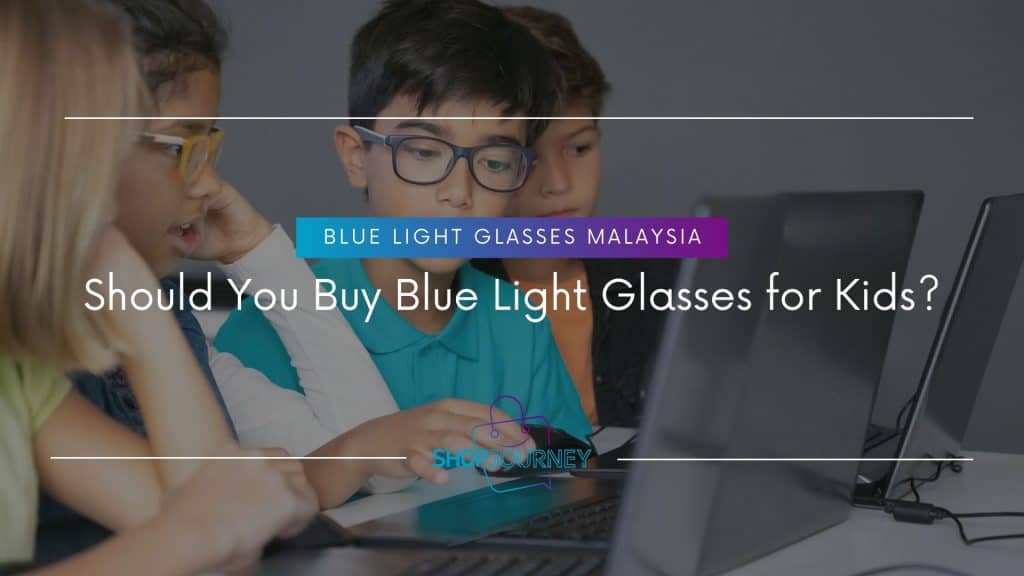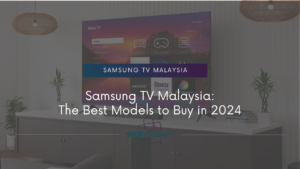Do kids need blue light glasses? That’s a question many parents find themselves asking these days, especially since kids now spend more time than ever learning, playing games, and streaming media on digital devices. Blue light-filtering glasses have become more popular as parents look for ways to reduce exposure to blue light.
In recent times, blue light glasses made specifically for kids have been hitting the market. These glasses claim to protect the vision of kids from damage due to blue light exposure. But do these glasses do as claimed and should you purchase one for your active child? Read on to discover if blue light glasses really work and if you should consider buying blue light glasses for kids.
What is Blue Light Anyway?
Blue light is one of 7 other colours in the visible light spectrum. You probably know these light colors from the ROYGBIV acronym. These light colours form the composition of white light from the sun. Each of these light colors has different wavelengths which give them varying energy levels.
Blue light belongs to the shorter wavelength spectrum which means it has higher energy than many of the other light colours. Due to this property, it is often linked to eye damage. However, scientific evidence is still quite limited. Most of the light emitted by the LED used in TVs, smartphones, laptops, tablets, iPad and other media display devices are between wavelengths of 400 and 490 nanometers which falls within the blue light range.
Is Blue Light Actually Bad?
Energy from the sun contains high amounts of UV light and blue light. Since prolonged exposure to high-energy light from the sun can put you at risk of eye disease, it is common for people to wonder if the same blue lights from digital screens can be harmful. This has led to various probes and research into the potentials of blue light to cause eye defects. But so far, there has been no major evidence to support the theory that blue light from digital screens can lead to eye disease or vision problems.
According to guidelines from the American Academy of Ophthalmology, this so-called harmful blue light does not exactly cause eye defects. However, blue light interacts with the brain in ways that may adversely affect you in various ways. Excessive exposure to blue light can affect sleep quality which is why it is often recommended to keep the screens away around your bedtime.
Blue Light and Your Eyes
More research is needed to confirm or refute the impact of blue light from digital screens on the eye. However, experts say computer vision syndrome (digital eye strain) affects up to 50% of computer users resulting in blurred vision, eye irritation, dry eyes, and other symptoms. Blue light has also been linked to phototoxicity and macular degeneration which affects the retinas. The impact of blue light on eye health depends largely on the exposure time and wavelength of the light.
Blue Light and Sleep
Although the impact of blue light on eye health has not been proven, experts agree on the effect of prolonged blue light exposure on sleep. Blue light from digital devices affects the brain’s sleep cycle. This signals your brain to stay awake even when you’re trying to sleep. According to one study, about 2 hours of exposure to blue light prior to bed down slowed down the release of the sleep hormone melatonin. This is why it is recommended that you get your kids to power down their digital devices at least 3 hours before their regular bedtime.
Pros and Cons of Blue Light Glasses
The eyes of kids don’t filter blue light as well as that of adults. This means too much exposure to blue light from the devices they interact with can lead to various side effects. To avoid these side effects, wearing non-prescription anti-blue light lenses is often recommended in addition to other measures. The following are some of the downsides and benefits of this approach.
Pros
- Blocking blue light may improve sleep quality
Overexposure to blue light in kids has been linked to the slow release of sleep hormones. This can make it difficult for kids to sleep at night. In addition to limiting screen time especially before bedtime, using blue light may also be beneficial to sleep quality.
- Some experience that it helps with the screen glare
Glare from blue screens can be quite uncomfortable and may adversely affect the eye. Many users claim they experience less screen glare when they use blue-light-blocking lenses.
Cons
- Science-backed benefits are lacking
Research into the effects of blue light and how blue-light lenses can help is still quite limited. Hence, there isn’t sufficient scientific evidence to back many of the acclaimed benefits of using blue light glasses.
- Studies show that it does not help with eye strain or headaches
Although this is a common claim to support the use of blue light lenses, evidence suggests otherwise. Digital eye strain is caused by prolonged screen time and concentration with less frequent blinking. There is limited evidence to conclusively support the effectiveness of blue light glasses to prevent this.
Tips on Managing Digital Eye Strain
Since the scientific evidence in favor of blue light lenses for kids is a little limited, it is important that you combine their use with other methods to control blue light exposure. Here are a few tips that you may find helpful.
Taking breaks – the 20-20-20 Rule
The 20-20-20 rule is quite helpful for preventing digital eye strain for people who spend a lot of time in front of their screen. This rule recommends that a person looks at an object about 20 feet away for 20 seconds every 20 minutes spent in front of their screen. This provides an effective way to take frequent breaks in between screen time. This reduces eye strain and other consequences of looking at the screen for too long.
Ensuring their workspace gets enough natural light
Staring at a digital screen is easier on your eyes if the room around you is well lit. This breaks your focus on the screen and also limits glare on the eyes.
Exposure to nature
If your kid spends a lot of time in front of the screen, such a child should also get as much time outside as possible. This can be as little as staring out the window. Looking at greenery has been shown to have a soothing feeling on the eye and mind and can help reduce the adverse effects of overexposure to blue light.
Distance child from the screen
Parents often wonder what the ideal distance from a screen should be. Generally, experts recommended a distance of at least 8 to 10 feet when watching TV. As a general rule of thumb, your kid’s face should be at a distance that is up to 5 times the width of the screen.
Reduce brightness / set dark mode on screens where possible
Another strategy that can help limit the impact of blue light from screens is to reduce the brightness of the screen. Many mobile applications now have a dark mode that reduces the overall intensity of light.
Eye drops for dry eyes
One of the symptoms of digital eye strain is dry eyes. While there is no exact cure for dry eyes, using an eye drop can be very helpful. It moisturizes the eye and helps to prevent itching and irritation. Speak to your doctor to get recommendations for the best eye drops for you.
Limit screen time before bed
Limiting screen times especially before bed has been recommended as one of the ways to ensure that your kids get better night rests. This might be a struggle since kids may not understand the connection between their extended viewing time and the need to stop watching TV.
Blue Light Glasses for Kids in Malaysia
So should you buy blue light glasses? The jury is still out regarding this one. Since there isn’t sufficient proof that blue light actually causes eye damage and further research is needed to draw a final connection, using blue light lenses or not is subject to individual preferences.
Many people find that it helps and since using one is not harmful, you can get one for your kid. If you are interested in buying one for your child, the following are some products we really recommend.
1. Lightest Blue Light Glasses: Cyxus Blue Light Glasses For Kids
Thanks to stylish frames and unisex design, both girls and boys can wear this blue light lenses. It is suitable for kids between the ages of 3 to 12. Not only does the Cyxus Blue light glasses provide 100% protection for your eyes, but it also has a simple design that makes it perfect for kids. The TR90 frame is ultralight, super flexible, and very durable. The lens has a double-layered build and is stable and explosion-proof. The frame comes in three different options for a fashionable look.
2. Best Blue Light Glasses for Older Kids: Computer Eyeglasses Anti Radiation Glasses for Kids
These anti-radiation glasses protect your child’s eye from potentially harmful blue lights and prevent eyestrain and headache. It features an ultralight and flexible TR90 frame. The flexible frames are made from food-grade plastic material which makes it safe for kids to use. The flexibility of the frame further improves its durability. The lens is removable and can be replaced with prescription glasses. It is recommended for kids between 5 to 12 years of age and has a one-size fit all design that makes it suitable for older kids.
3. Best Fashionable Blue Light Glasses: Blue Light Blocking Kids Eyeglasses
These special blue light eyeglasses are recommended for kids between the ages of 3 to 12 years. It has a unisex design which means it is suitable for both boys and girls. It comes in two frame designs. There is the rounded shape plastic frame option as well as a square-shaped frame made from silicon materials. The frames are flexible and durable to ensure that they last for a long time especially if you have a very active child. Ordering this product comes with a blue light tester to confirm the effectiveness of the glass.
Conclusion
Although there is limited evidence to support the impact of blue light on eye strain and other symptoms it does interact with the brain in ways that may cause some adverse effects. Blue light glasses may be able to help reduce some of these effects, especially when combined with other measures to limit screen time and your child’s exposure to blue light. If you’re concerned about your child’s overall health, you can always consult your paediatrician about a omega-3 fatty acids supplement or vitamin C booster as both have been linked to eye health.
However, if you’re still looking for an affordable blue light glasses option to try out, we recommend the Computer Eyeglasses which sits below RM20. If you have any questions about blue light or would like to share your kid’s experience with blue light glasses, do leave a comment below!
Frequently Asked Questions
1. Are blue light-blocking glasses safe for children?
Yes, as far as safety goes, it is safe for kids to wear blue light filtering glasses.
2. Can blue light glasses prevent myopia?
Currently, there is no conclusive scientific proof that ties blue light to myopia and other forms of eyesight damage or eye fatigue. So wearing blue light glasses has no impact on myopia.
3. Are blue light glasses expensive?
No, blue light glasses are not expensive. Since they do not require prescription lenses, blue light glasses don’t cost a lot.




